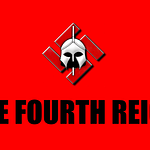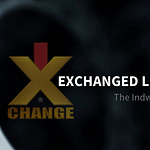Listen to the podcast version:
I CAN ONLY IMAGINE
In such a system, decisions are made based on merit, truth, and the common good—free from the constraints of political tribalism.
Representatives would be chosen for their integrity, wisdom, and ability to serve all constituents, not just a party base. This could foster more honest dialogue, reduce polarization, and encourage collaborative problem-solving across diverse perspectives. Without party lines to divide, the focus could shift toward practical solutions, moral clarity, and policies that reflect the will and welfare of the people. While challenges would remain, the possibilities for unity, transparency, and restored trust in governance are profound.
Eliminating political parties and shifting to direct citizen voting would radically transform governance—potentially increasing independence and accountability, but also introducing new challenges in coordination, representation, and decision-making.
Yeshua is not partisan because His kingdom is not of this world, nor bound by its political divisions. He transcends human ideologies, offering truth, justice, and mercy to all—regardless of affiliation or allegiance. In His earthly ministry, He neither aligned with the zealots nor the rulers, but called each heart to repentance, humility, and love. “For God shows no partiality” (Romans 2:11, ESV). Yeshua’s mission was to reconcile humanity to the Father, not to endorse earthly power structures. His leadership is marked by servanthood, not dominance; by righteousness, not rhetoric. In Him, we find a higher allegiance—one that unites rather than divides and calls every soul to follow the way of truth, not the way of factions.
Representation without political parties would usher in a more personalized and principle-driven approach to governance.
Candidates would stand on their own merit, inviting voters to evaluate their character, values, and issue positions without the filter of party allegiance. This shift could foster deeper civic engagement, as citizens would be called to discern not just who aligns with a party, but who truly represents their convictions and community needs. Campaigns would likely become more localized, with candidates relying on reputation, direct outreach, and grassroots support rather than national party funding or branding, which is frequently corrupt. In this model, authenticity and relational trust would become the currency of leadership.
However, such a system would also demand more from the electorate. Without party platforms to serve as shorthand, ballots would require voters to research each candidate’s stance on a wide range of issues. While this could lead to more informed and thoughtful voting, it also risks voter fatigue—especially in large elections with many contenders. The absence of party structure might slow legislative processes, but it could also encourage more genuine collaboration and reduce the tribalism that often divides public discourse. Ultimately, representation without parties offers both promise and complexity, inviting a return to governance rooted in conscience, clarity, community, and the organic structure of the US Constitution.
Voting on issues directly would shift the power of lawmaking from elected representatives to the hands of the people, allowing citizens to cast “yes” or “no” votes on individual policies.
This model, similar to ballot initiatives or referendums, could dramatically increase democratic participation by giving individuals a tangible role in shaping legislation. It would foster civic engagement, encourage public discourse, and potentially restore trust in the political process by removing layers of bureaucracy and partisanship. In essence, it invites every voter to become a legislator—empowered to affirm or reject proposals that affect their daily lives.
However, this approach also carries significant challenges.
Complex legislation often involves intricate legal, economic, and social considerations that require deep understanding and careful deliberation. Without the benefit of expert analysis or representative debate, voters may struggle to evaluate the full impact of each proposal. Oversimplification of nuanced issues could lead to unintended consequences, and the sheer volume of decisions might overwhelm even the most engaged citizens. For direct voting to succeed, it would require robust educational resources, transparent policy summaries, a culture of informed participation, while voters would need to maintain communications with their elected representatives. Otherwise, the promise of empowerment could be undermined by confusion or apathy.
In a non-partisan system of governance and lawmaking, the absence of party caucuses would lead to legislative bodies forming fluid coalitions based on shared convictions rather than party lines.
This could encourage more authentic debate and compromise, as representatives align themselves with issues rather than ideologies. Leadership roles such as Speaker or Majority Leader would arise organically through collaboration and trust, not through party loyalty or seniority. While this approach might slow decision-making due to the need for broader consensus, it would also heighten accountability—placing the weight of responsibility on individual representatives. In such a system, transparency and public engagement become essential, as citizens must actively track and evaluate the actions of those they elect, ensuring that governance remains rooted in integrity and responsiveness.
The concept of non-partisan governance is not new—it has historical roots and modern relevance across the globe. In the United States, many local governments and judicial elections already operate without formal party affiliations, allowing candidates to be evaluated on their qualifications and community impact rather than partisan loyalty. Looking further back, ancient democracies such as the Greek polis and Swiss cantons thrived without structured political parties, relying instead on direct citizen involvement and communal decision-making. Today, modern experiments like deliberative democracy and citizen assemblies are gaining traction, offering fresh models for inclusive and issue-focused governance. However, these approaches require robust civic infrastructure, informed participation, and a cultural commitment to dialogue and discernment to truly succeed.
THE NON-PARTISAN BIBLICAL VIEW
The biblical model of governance, as seen in the Kingdom of God, is profoundly non-partisan. Yeshua’s reign is not built on political factions or earthly alliances, but on righteousness, justice, and truth. His leadership is rooted in servanthood, impartiality, and divine authority—“For the Lord is our judge; the Lord is our lawgiver; the Lord is our king; He will save us” (Isaiah 33:22, ESV). In the Kingdom of God, every citizen is called to submit to the rule of Christ, not to the sway of party platforms. Decisions are made not by majority opinion, but by divine wisdom, and leaders are chosen by calling, not campaigning. This model elevates character over charisma, obedience over popularity, and unity over division.
Interestingly, the U.S. Constitution mirrors aspects of this biblical framework. It was designed to protect liberty through checks and balances, not partisan control. The Founding Fathers envisioned a republic where representatives would serve the people, guided by conscience and principle rather than party loyalty. Today, that modality is gone! While political parties eventually emerged, the Constitution itself does not mandate them. In fact, its emphasis on individual rights, limited government, and moral accountability aligns more closely with the biblical call to justice and stewardship than with partisan entrenchment. When governance reflects the impartiality and integrity of the Kingdom, both church and state flourish in their God-given roles—serving the people, upholding truth, and preserving peace.
What if we dared to imagine a system of governance that reflected the impartiality of the Kingdom of God and the original intent of the U.S. Constitution?
A system where representation wasn’t filtered through party loyalty, but through personal integrity, wisdom, and a commitment to truth. Where citizens voted directly on issues that affect their lives, and leaders were chosen not for their allegiance to a platform, but for their proven character and ability to serve all people. This isn’t just a dream—it’s a plausible path forward.
Now is the time to move from contemplation to action. Encourage your family & friends to engage their local, state, and national representatives with this idea. Ask them to consider reforms that promote non-partisan leadership, direct issue-based voting, and transparent accountability. Remind them that the Constitution does not require political parties—and that the biblical model of governance calls for justice, humility, and servant-hearted leadership. When informed citizens speak with clarity and conviction, even entrenched systems can shift. Let this be the generation that kneels before the King of thorns and calls it victory—not through division, but through restoration.











